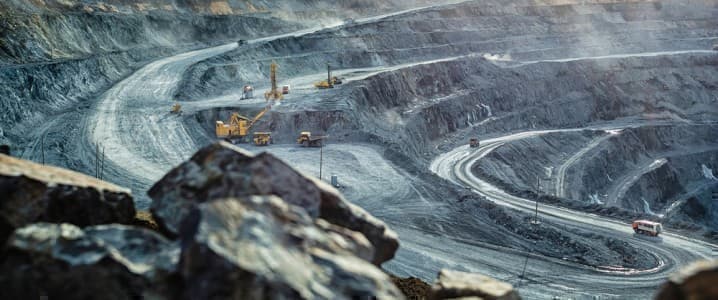As the global green energy transition has gained traction, the movement away from fossil fuels and toward renewable and low-carbon energy sources has been marked by ups and downs and wide gaps between rhetoric and practice. Public and private leaders of policy and industry alike have been (relatively) quick to make climate pledges and align themselves on the side of decarbonization, but actual action plans and concrete steps toward sweeping and lasting change have been harder to come by. In a certain sense, this is a very understandable dilemma; we all know what is needed in the long run, but there is no easy or painless way to get there. Climate change is a wicked problem that will require no small measure of trade-offs, losses, and market shocks as the world’s largest global cooperative initiative grinds into gear under the gun of what the United Nations is referring to as a “code red for humanity.”
For the world to have any hope of meeting climate goals in time to avoid the worst impacts of global warming, markets are going to need to see a quick shift with the cooperation of both policy-makers, industry heads, and the financial sector, all of which currently run on fossil fuels. The effort will require divestment from fossil fuels as well as a huge inversion of cash into cleaner energy alternatives and infrastructure to make renewables capable of replacing massive amounts of oil, gas, and coal capacity.
While the decarbonization problem is a tricky one, and there is no shortage of disagreement and debate over the proper path to decarbonization, one thing that the world seems to agree on is that coal, the dirtiest fossil fuel, needs to be run out of the world’s energy mix post-haste. The International Energy Agency and the Intergovernmental Panel on Climate Change (IPCC) have shown in no uncertain terms that all scenarios which envision the world meeting the goals set by the Paris climate accord involve the rapid retirement of coal as an absolute necessity.
However, a recent report from campaign groups Urgewald and Reclaim Finance, alongside more than two dozen other non-governmental organizations, found that banks and investors have been dishonest about their divestment aims and claims. “Banks and investors have channeled massive sums of money to support the coal industry in recent years,” CNBC recently reported, thereby “propping up the world’s dirtiest fossil fuel at a time when humanity is facing a climate emergency.”
Between January 2019 and November of last year, commercial banks funneled a jaw-dropping $1.5 trillion into the coal industry alone. The analysis also shows that a tiny number of financial institutions are playing a remarkably outsized role in supporting coal and directing global energy markets in a way that some would call short-sighted, and others would call criminally negligent. Financial firms from just six countries – the United States, China, Japan, India, Canada, and the United Kingdom - are responsible for more than 80% of coal financing and investment.
Related: OPEC Is Ready To Embrace $100 Oil
“These financial institutions must come under fire from all quarters: civil society organizations, financial regulators, customers, and progressive investors,” said report author and head of financial research at Urgewald Katrin Ganswindt. “Unless we end financing of coal, it will end us.” On the bright side, the coal problem suddenly seems a lot easier to conquer. Naming and shaming have proven effective in the past and could have a potent impact with such a short list of parties on which to focus the coal reformation initiative.
The recent bombshell report also calls attention to the prevalence and insidious nature of greenwashing among the ranks of institutions that are providing the scaffolding upholding coal. Two of the investors called out in the report – BlackRock and Vanguard – are also members of the Net Zero Asset Managers Initiative. “These two institutions have more responsibility for accelerating climate change than any other institutional investor worldwide,” Yann Louvel, a policy analyst at Reclaim Finance, was quoted by CNBC.
While coal is entrenched in the global economy, and particularly in developing countries that are in desperate need of a cheap and dependable fuel source, coal is not the only option. Looking at the amount of money being channeled into keeping coal alive reveals how much more money could be channeled into making cleaner energy more affordable and accessible. Change isn’t easy, but it’s possible – especially and necessarily when financial, political, and industrial mechanisms are held accountable.
By Haley Zaremba for Oilprice.com
More Top Reads From Oilprice.com:
- Oil Prices Temporarily Break $99 As Russian Troops Move Into Ukraine
- 5 Commodities That Could Explode As The Ukraine Crisis Escalates
- Russia Speaks Out Against High Oil Prices As Brent Nears $100


















